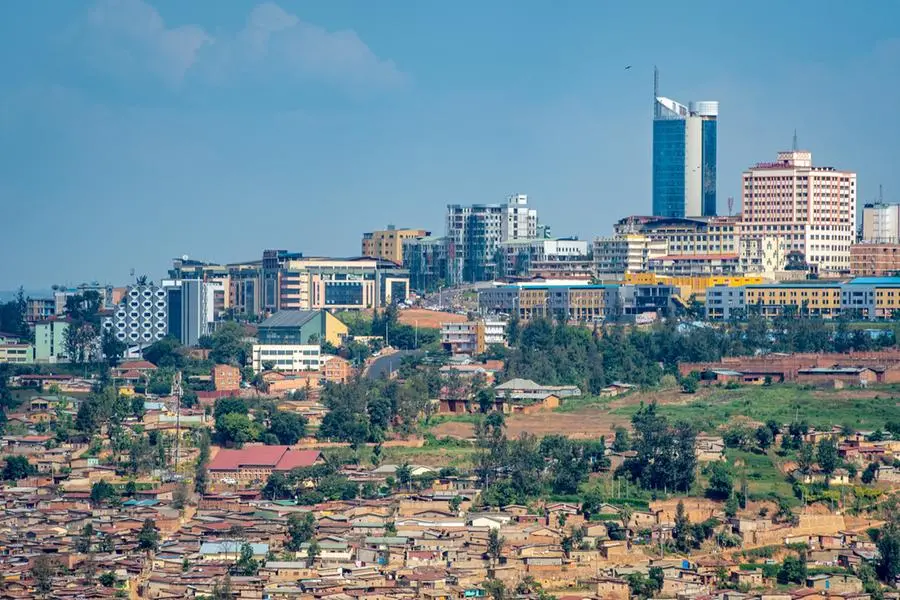PHOTO
The National Bank of Rwanda (NBR), the country's central bank, on Thursday maintained its policy rate unchanged at 7.5 percent to consolidate recent gains in containing a drastic increase in prices and protect economic growth.
Announcing the decision on Thursday, Rwanda’s Central Bank Governor John Rwangombwa said no further increments are expected as inflation is expected to be contained to single digits by next year.“Prices are declining but not yet where we want them to be. The policy committee decided to maintain the rate so that it (inflation) continues to decline further to fall within our target. We remain optimistic that inflation further reduce to our benchmark by next year,” Rwangombwa said announcing the rate-setting committee’s decision.
He said Rwanda’s headline inflation is expected to fall within the band - below 8 percent - an average of 8 percent in the quarter by the end of the year to around 6 percent next year, according to the central bank.“We think it (policy rate) is tight enough and we intend to maintain it for the next year. However, there are risks -geopolitical tensions could affect prices and it depends on the performance of agriculture,” Rwangombwa said, pointing out that poor performance of the agriculture sector could negatively affect prices and undermine growth prospects.
Rwanda’s fresh food inflation which is the major driver of inflation though declining is still high at 31.4 percent down from 40.4 percent amid increases in regional food imports which has helped to stabilise prices.
Rwanda's Consumer Price Index (CPI), the main gauge of inflation increased by 11.2 percent year on year in October 2023 down from 13.9 percent in September 2023.
In October 2023, 'Food and non-alcoholic beverages' increased by 23.1 percent on an annual basis, and it was stable on a monthly basis.
A recent government initiative has resulted in a noticeable reduction in the prices of essential food items.
To address concerns about the high cost of living, the government took action by removing the value-added tax (VAT) on several commonly consumed food products.
For instance, a 25kg sack of long-grain rice imported from Tanzania, saw a price decrease from Rwf37,600 ($3.4) to Rwf32,000 ($2.5) and a 25kg sack of maize flour, which dropped from Rwf27,000 ($2.1) to Rwf23,000 ($1.8)A kilogram of Irish potatoes saw a reduction to Rwf700 ($0.5) from Rwf1,600 ($1.2) and a ten-litre container of upgraded cooking oil decreased from Rwf16,000 ($12.9) to Rwf15,000 ($12.1). A kilogram of beans cost Rwf1200 ($0.9) dropping from Rwf1600 ($1.2).
A five-litre container of cooking oil costs Rwf9,500 ($7.6) down from Rwf10,000 ($8.0).
The cost of borrowing decreased marginally to an average of 15.93 per cent in the fourth quarter down from 16.17 percent in the previous quarter.
However, the International Monetary Fund (IMF) recently recommended that NBR consider raising interest rates further to curb inflation.“The recent tightening of the monetary policy stance is appropriate, but further policy adjustment would be necessary should second-round inflation effects from shocks to domestic food supply prove to be more pronounced, exchange rate depreciation result in stronger-than-expected inflation passthrough, or external pressures accelerate…” the IMF said in a statement issued on October 31 following its team’s visit to Kigali.
Read: IMF boss in Kigali for climate change financing talks“Given the more accommodative fiscal stance in the near term, continued nominal exchange rate flexibility will be needed to support the external adjustment.
Efforts to develop a foreign exchange market and strengthen the intervention framework are needed to improve monetary policy transmission.”Despite the shocks, the Rwandan economy is expected to remain on track- 6.3 percent in 2023 supported by a rebound in trade services, tourism and the construction industry.
© Copyright 2022 Nation Media Group. All Rights Reserved. Provided by SyndiGate Media Inc. (Syndigate.info).





















